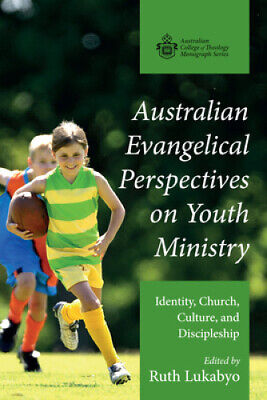Is “sin” a type of hate speech that should be abandoned in the face of societal disapproval? Bill Salier faces this question front on in a chapter on faithfully teaching children about sin in Australian Evangelical Perspectives on Youth Ministry: Identity, Church, Culture and Discipleship,” edited by Youthwork College’s Ruth Lukabyo.
Salier, the former Principal of Youthworks College, quotes psychologist Bruno Bettleheim, who studied disturbed children. Yet wrote “There is a widespread refusal to let children know that the source of much that goes wrong in life is due to our very own natures—the propensity of all men for acting aggressively, selfishly, out of anger and anxiety. Instead, we want our children to believe that, inherently, all men are good. But children know that they are not always good; and often, even when they are, they would prefer not to be. This contradicts what they are told by their parents and, therefore, makes the child a monster in his own eyes.”
That would seem to make the teaching of sin a response to children’s own realistic perception of who they are. Salier does not dismiss the “political difficulties” a Scripture teacher in a public school may encounter about this topic. It might be the hottest of hot topics. To talk of sin is to push back against the current therapeutic culture, to reject the comfort zone of modern Australia.
But the value of this chapter is that it offers language that might be helpful in teaching this topic, which this teacher approaches with no little trepidation. The material I have taught from – a widely used curriculum – seems to want me to define sin, almost as a mantra in the classroom.
But Salier makes a suggestion that lightens my heart. Drawing on the great theorist of the stages of child development, Jean Piaget, Salier expresses caution about teaching abstract concepts to children.
“Sin can be quite abstract (even for adults who, for various reasons, are unfamiliar with it), and so we need to help people see the concrete reality. The danger here is that we might begin to focus on individual sins to be concrete and end up walking down the path to moralism and away from the relational understanding commended above.”
Salier suggests that the Bible has a “rich range of possibilities … for helping young people to understand the concept of sin. These include missing the mark, transgressing, falling short, disobeying, and breaking the law. The great children’s evangelist Owen Shelley, in his book on teaching children the gospel, points to the variety of biblical words and images for sin. He lists images such as being lost, being blind, darkness, in debt, enslaved, burdened by guilt, spiritually dead, stained by sin, and rebellion as just a few of the word pictures.
“Each of these are associated with a Bible narrative that we can draw on as a resource to help young people grasp the reality of both the essence, depth, and consequences of sin. These images and stories can help us take young people beyond a cognitive understanding of the concept to a holistic appreciation of sin and its consequences.”
I might be the only person teaching children to have struggled to get the concept of sin across – knowing that it is probably too abstract a concept on its own. But I just might not be the only one. So I am grateful to Saleir – and Owen Shelley for the great pointer.
Later in the chapter, Salier draws on another pioneer psychologist, Erick Erickson, to discuss how sin might affect various age groups. This includes very young children. I think it might be helpful to speak against the tendency that Christian parents might have to see very young children as wilfully sinful at an age when modern research on child development casts doubt on whether a child can think that way.
But that’s not my problem – I teach school-age children, and Saleir has helpfully suggested ways I can avoid being overly abstract.

Australian Evangelical Perspectives on Youth Ministry: Identity, Church, Culture, and Discipleship. Edited by Ruth Lukabyo, 2024.
Published in the Australian College of Theology Monograph series by Wipf and Stock Publishers.


The concept of original sin is fraudulent. Why burden children with this anxiety?